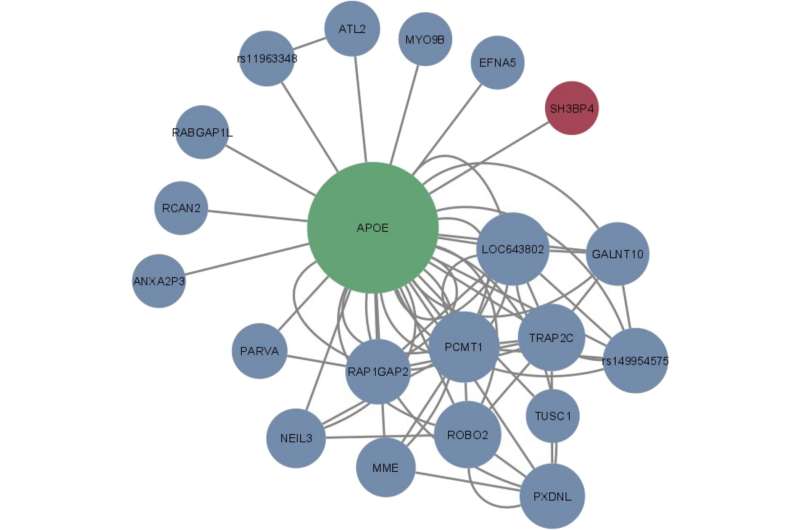This article has been reviewed according to Science X's editorial process and policies. Editors have highlighted the following attributes while ensuring the content's credibility:
fact-checked
peer-reviewed publication
trusted source
proofread
Researchers use AI to discover two new genetic variants for Alzheimer's disease

Research scientists at CSIRO, Australia's national science agency, have used artificial intelligence (AI) to further unlock the genetic secrets to Alzheimer's disease.
Using CSIRO tools VariantSpark and BitEpi, scientists at the Australian e-Health Center have identified two new genetic variants associated with Alzheimer's disease, as well as 95 new gene interactions that may modulate the effects of variants in Alzheimer's.
Identification of variants helps to predict the occurrence, severity, and potential treatments of the neurodegenerative disease. However, the identified variants alone do not account for all heritability of Alzheimer's and other neurodegenerative disease. Interactions between variants, known as epistasis, are thought to contribute to the onset and expression of disease.
Up until now, variants were measured only according to their cumulative effect. That is, how one gene in combination with another increased the likelihood or expression of the disease.
CSIRO Research Scientist and senior author on the paper published in Scientific Reports, Dr. Natalie Twine, said some interactions between genes can protect against Alzheimer's.
"By using BitEpi we can identify these interactions and explain some of the missing links in Alzheimer's heritability," Dr. Twine said.
Alzheimer's disease is the most predominate form of dementia. In 2022 there were more than 400,000 people living in Australia with dementia and with the growing and aging population, rates are predicted to double by 2058.
Lead author on the paper, CSIRO post-doctoral fellow Dr. Mischa Lundberg, said by incorporating significant epistatic interactions, we captured 10.41% more phenotypic variance than past methods.
"This means an increase in our ability to capture the drivers of disease, which is important for Alzheimer's research because by knowing underlying drivers, we can identify at risk patients sooner, and intervene earlier," Dr. Lundberg said.
CSIRO plans to continue to test and apply Variant Spark and BitEpi tools as solutions to existing problems. For example, often genomic information is stored in "silos"—disparate geographical locations—and researchers are unable to share due to data privacy constraints, making it difficult to consolidate for higher powered research studies.
VariantSpark offers a solution, "federated learning," where a machine learning model can be generated from siloed data sources and the insights can be delivered without the entire dataset needing to be revealed.
More information: Mischa Lundberg et al, Novel Alzheimer's disease genes and epistasis identified using machine learning GWAS platform, Scientific Reports (2023). DOI: 10.1038/s41598-023-44378-y



















